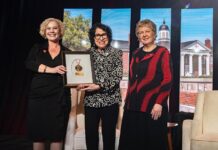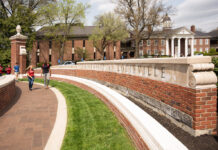It may seem quick and easy to grab your keys and jump in your car anytime you need to get somewhere — heck, with all the slick auto ads we’re exposed to every day, you’d think it’s nothing less than the American dream — but just consider all the ways our car-dependency is literally killing us:
- Hundreds of people are killed and injured by vehicles on Louisville’s streets each year. 32,310 people were killed on America’s roadways in 2011. It’s a constant, rolling tragedy vastly more deadly than the 9/11 attacks, wars, or gun violence claiming the headlines. Add in the undocumented body count of animal ‘road kill’ and you’ve got a truly horrifying amount of carnage that is simply unacceptable. It doesn’t have to be this way. You can help make our streets safer simply by choosing a better way of getting around.
- Auto-dependency is also contributing to our sedentary societal crisis that is resulting in an unprecedented epidemic of obesity, diabetes, heart disease and other preventable diseases associated from lack of activity. With a 60 percent obesity rate in Louisville, perhaps it is time for us to get some exercise in the process of getting where we need to go. Studies have found that the average person loses 13 pounds during the first year of bike commuting, but even daily walks to/from the bus stop or a carpool driver’s house can build a life-saving base of activity into your daily routine.
- Just like second-hand smoke victims, even those who don’t drive are suffering from our car-dependency. Driving pollutes our air with carbon monoxide, nitrogen and sulfur oxides, ozone and particulate matter, all of which contribute to Louisville’s poor air quality and a wide variety of acute health impacts. Vehicle emissions also contribute to global climate change. At UofL, roughly 10 percent of our total greenhouse gas emissions result from commuting to campus. We’re already witnessing the deadly effects with record-breaking heat waves, violent storms, floods, droughts and lethal tornadoes.
- And consider the direct financial costs of driving. The American Automobile Association reports that, excluding loan payments, the average person driving a medium-sized sedan 15,000 miles/year can expect to spend $8,776 each year on fuel, parking, insurance, maintenance, tire wear, license and registration fees, loan finance charges, and vehicle depreciation costs. (SUV drivers will spend $11,239/year.) These costs are only expected to rise. Couldn’t you use an extra $9,000 in your pocket this year?
Well, I’ll see your $9,000 and raise it $400! UofL wants to help you think outside the car and we’re willing to put our money where our mouth is. This fall we’re launching a whole suite of initiatives to make it even easier to give in to your dreams of spending less time behind the wheel and more time living.
- Earn-A-Bike Program: If you’re willing to go without a UofL parking permit for at least two years, we’ll reward you with a $400 voucher redeemable at area bikes shops toward a bike or other cycling products/services. Applications will be accepted each year through the end of the first week of classes (Aug. 24). Our resource page for UofL bike commuters provides valuable tips, route mapping tools, videos, and information about classes to keep you safe and happy on two wheels.
- WeCar Car-Share: Why bring your car to campus when you can borrow ours? Reserve one of our fuel-efficient vehicles online and pay a low hourly or overnight rate that includes gas and insurance. Employees pay just a $10 one-time application fee and can set up a personal or professional profile. Join by Sept. 1 to receive $30 in driving credits! Learn more.
- Bike-Share: New this fall, anyone with a UofL ID will be able to check out a bike with helmet and lock for free from the SAC gym on Belknap Campus.
- Increasing Bike-Friendliness: In accordance with UofL’s Bicycle Master Plan, we’re installing a total of 66 new bike racks (432 bike spaces) at numerous locations all around Belknap Campus, as well as five DIY Bike Fix-It Stations with basic tools and a pump. For help with repairs, users can scan the Quick Read (QR) code on the front of the Fix-It Station to see detailed instructions on a smart phone.
- Ride TARC Free: Simply show the driver your UofL ID to ride the entire TARC bus system for free. You can also combine modes by taking your bike on TARC if it’s too far, you’re too tired or the weather’s too nasty. Learn where TARC can take you!
- Carpool: UofL soon will launch a social media platform to match people offering and needing rides, whether for your daily commute or one-time trips. In the meantime, you can use the regional service Ticket To Ride to set up carpools, vanpools and even bikepools throughout Kentuckiana. Carpoolers also can register to access the free Guaranteed Ride Home program providing 80 percent of the cost of an emergency taxi ride home up to four times per year! Use this handy calculator to see how much you’ll save.
These exciting developments are being funded through UofL’s Climate Action Plan, but it’s up to you to take advantage of this opportunity to make the biggest, most important change in your personal sustainability. Choose life! Car-pe diem.





























